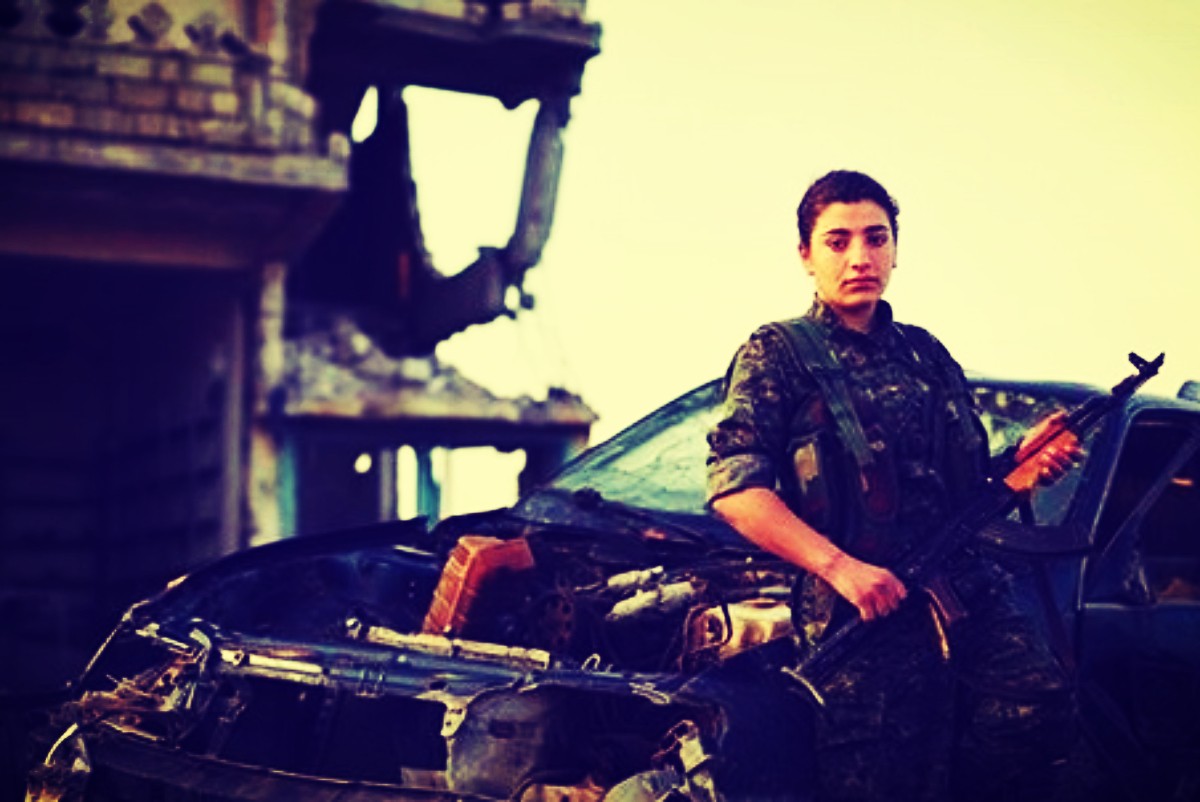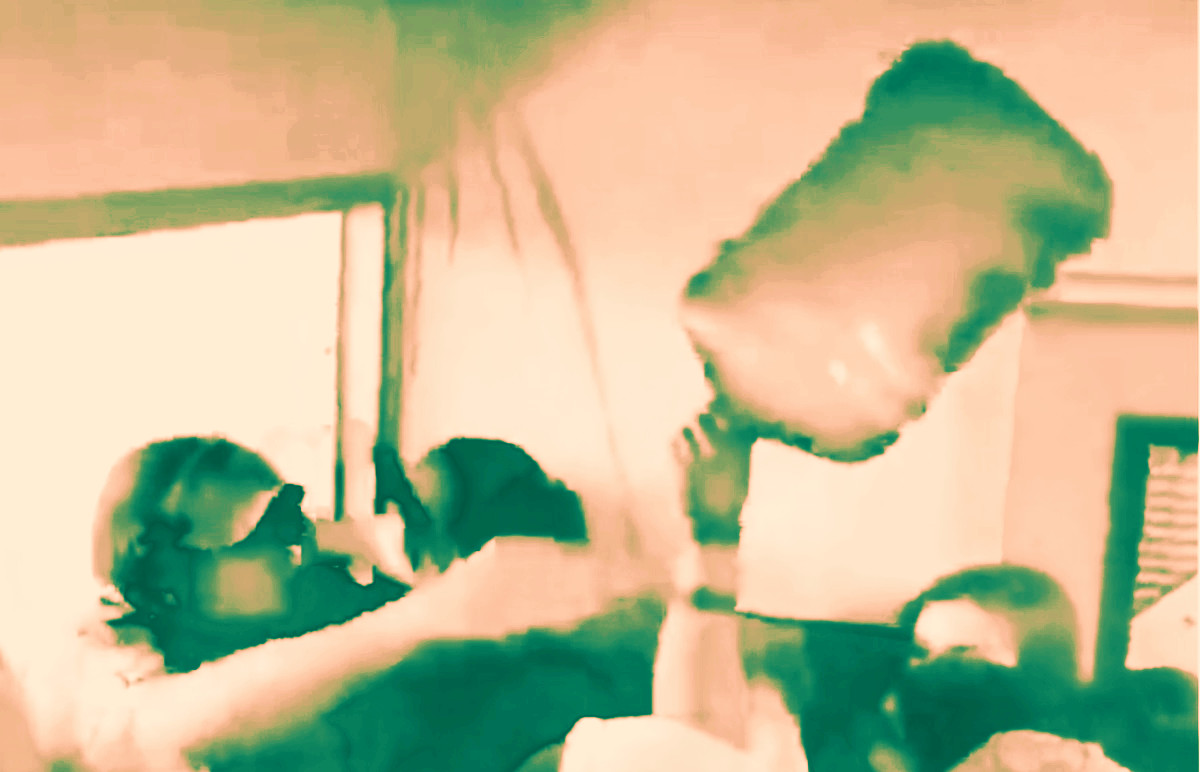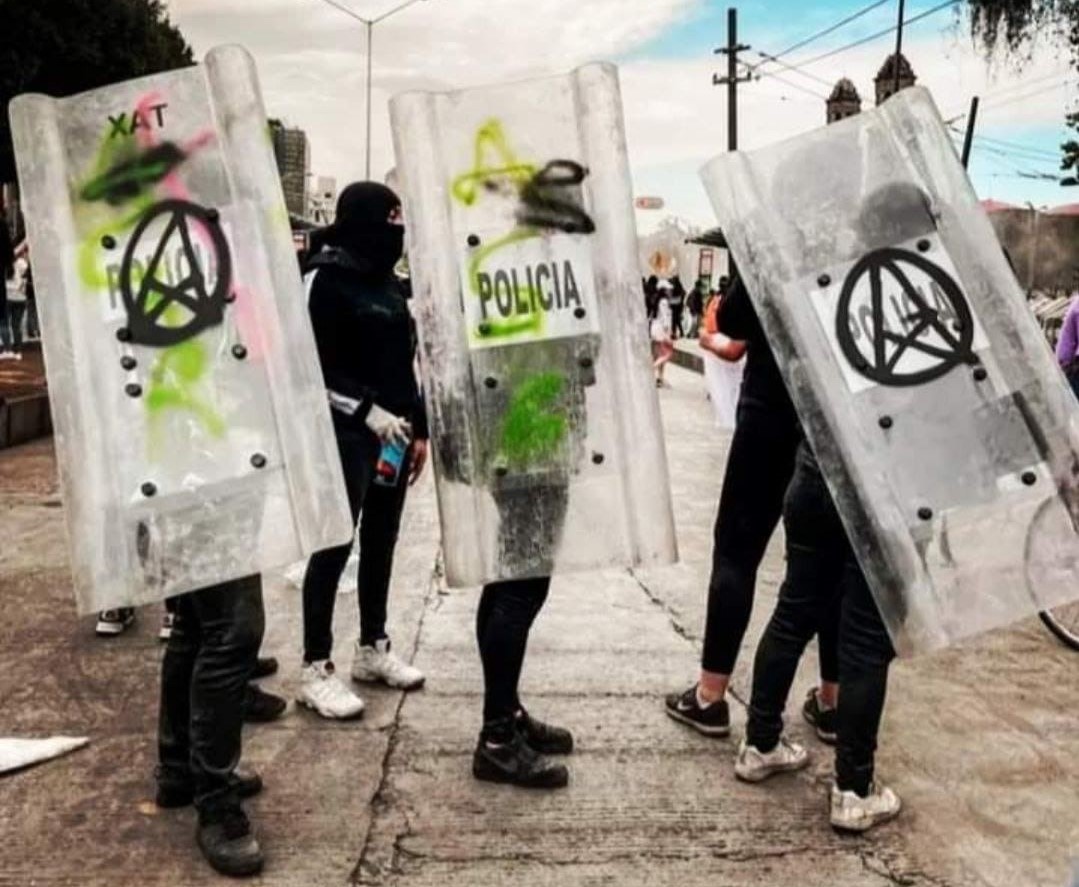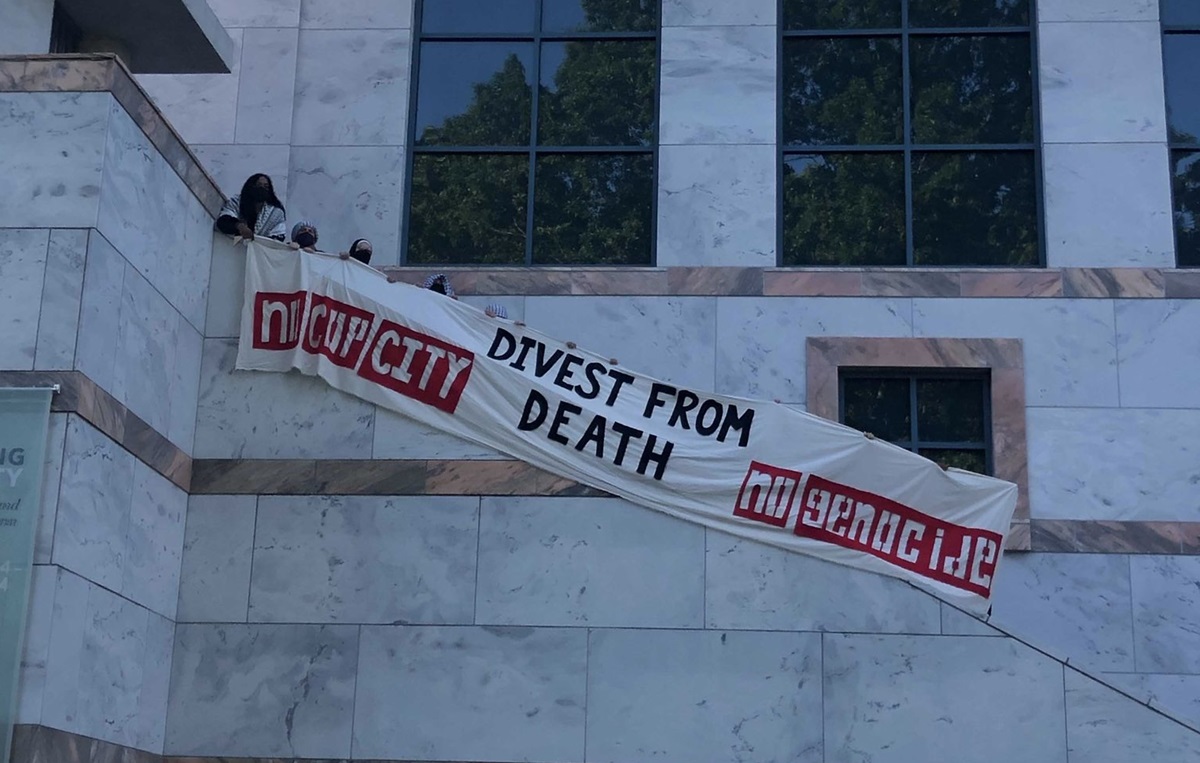Filed under: Anti-Patriarchy, Featured, Resistance is Life, War

Photos used with permission from Revolutionary Youth of Til Temir
The case is thus: a 57-year-old man has hunted down and shot dead his 20-year-old wife and his 23-year-old son, her lover, after they eloped together.
Her name was Nour.
“The commune where I live is likewise the former home of a rich Assyrian family and still littered with nick-nacks…”
Abu Saleh’s fate is to be decided by what the Kurdish movement calls a platform, a congress of his fellow citizens of the Democratic Confederation of Northern Syria. It will take place in a former bar in the Assyrian Christian quarter of the desert town Til Temir, abandoned and expropriated since the outbreak of war.
Almost all the Christians fled the region when Daesh (ISIS) sacked it three years ago, along with many of their Muslim neighbors. Poor mudbrick villages in the surrounding land stand empty, the bridges which connected them back-broken by mines.
Walking there, I pass abandoned electric outlines of Christmas trees and stars trampled into the mud between the homes, sprung rectangular springs of ak-47 magazines, spent American-made anti-tank missile casings, a whiteboard still marked up with field notes on the construction of explosives from fertiliser, Turkish and European leftist graffiti (La Lucha Continua!, Solidarity With The Victims of the Grenfell Tower Fire) among the Arabic and Kurdish (This Land Is Our Land, Revenge is Our Promise). Along the main road workshops stand empty with holes bored in their walls for gunmen to crawl through, foot by foot, martyr by martyr, spraying ticks on those houses known to be clean of the cete, that is bandits, vermin, Daesh.
By contrast, the rich and leafy Assyrian district in Til Temir itself has largely been taken over by the movement. Handsome houses have been turned into meeting-places and residences for the families of the martyrs, the autonomous women’s structure Kongra Star, the arts and culture committee.
The commune where I live is likewise the former home of a rich Assyrian family and still littered with nick-nacks, Christ mortified here, a whiskey descanter there. It has the fustian feel of a manse, and it feels strange to live sparsely among the dusty chintz and awkwardly-posed photographs of another family’s life, not least with the ten-times magnified visage of Abdullah Ocalan emerging from between tasselled curtains to greet us each morning like the man in the sun.
“the rich and leafy Assyrian district in Til Temir itself has largely been taken over by the movement. Handsome houses have been turned into meeting-places and residences for the families of the martyrs, the autonomous women’s structure Kongra Star, the arts and culture committee.
Til Temir is of modest size, and smaller still since so many fled to Europe or perished in the war. It has the uncanny feel of a sitcom town with One Of Everything. Of an evening I walk in the souq and see The Village Idiot blundering from The Bedsteads by The Crossroads to The Youth Centre to beg a cup of water; pass by The Mosque toward The Good Ice-Cream Shop, glimpse toy-town dramas unfolding across short streets, duck out of sight between parked cars to telephone The Comrade responsible for the revolutionary youth works and tell him that The Aggrieved Father is still waiting angrily for him down the road.
The Aggrieved Father is aggrieved because he correctly suspects that his daughter is not attending an education in another town four hours’ drive distant, but has joined the Kurdish liberation movement which is doing its best to change very many things in this town and a hundred others like it. His oldest son was martyred in the fight against Daesh, his oldest daughter has already fled his home to join the movement, and now his other daughter has left him also.
To imprisoned leader of the Kurdish struggle Abdullah Ocalan, Kurdistan’s location in the heart of the Fertile Crescent charges it with inevitable political and cultural — almost mythopoetic — significance. It is true that this region fructifies both revolution and reaction, as the black flag of Daesh made starkly clear: but meanwhile its ordinary residents, like people anywhere, surely considered their way of doing things entirely above reproach. History felt ended in Til Temir, in its own way, as much as in turn-of-the-century London or New York.
Fat patriarchs like Abu Saleh did not ask for the revolution to come here. But, contrary to the universally-held desire of fat patriarchs, times change. Abu Saleh killed his wife and son in a small town in large times, when an act of femicide in defense of honor is not the open-and-shut matter it was some years ago. And so, he is to be held to account.
I first typed out that Abu Saleh would be held accountable by his peers, but the savage partitioning of traditional society here makes it abundantly clear that there is no such thing. The townsfolk will all be there, the religious leaders and the heads of the families, of course; also the autonomous women’s structures, also the families of the martyrs, and also me, as a representative of the ciwanen şoreşger, the revolutionary youth.
The expropriated bar is large and built around a cool courtyard, surrounded by small swimming pools in which scummy water still sits. The rich revellers who once drank here are gone, fled to Qamişlo or Damascus or more likely to Germany. In their place are laid out candy-coloured chairs stamped with corporate logos (Apple, Toyota) like ecstasy pills. At a bar decorated with chintzy fake rocks, we are handed bottle water from Carlsberg-branded coolers.
This revolution is not the mere process of liberalization Western media has sometimes painted it to be. You would be hard-pressed to find a convivial place to get drunk in Til Temir these days: yet the panel who sits before us is more than half composed of women. The people have autonomously sorted themselves into a more-or-less masjid seating arrangement, women largely on the left and men on the right, religious bigwigs to the front: yet the women of Kongra-Star are a scowling olive spatter of paramilitary dress close behind.
We are watched over by members of the hawari, one of the new public security forces which have proliferated to provide work to the surviving young men and women of Rojava. They glower behind mirrored sunglasses, their camouflage obvious and ugly in the dappled light breaking through the grapevines overhead.
European, I am ushered to the front row, where I sit between a squat lawyer and the mother of a martyr from the nearby city of Hasekah, who died fighting Daesh in 2015. She gives me a pin with his face and his name, Dijwar Husen, emblazoned over the YPG flag.
“Şehid namirin,” I say, martyrs never die.
We hastily stub out our cigarettes and rise for a short minute’s silence for the martyrs. “Şehid namirin,” Dijwar’s mother repeats as the minute closes and the platform begins.
The platform is the same process which is used when a fermander in the YPJ makes the wrong decisions in battle and allows her soldiers to be killed, by which we sought to to analyze our shortcomings as revolutionaries following our month’s education on arrival in Rojava, in which I saw a French militant weep over his decision to leave the frontlines of the hopeless war against Turkey’s NATO warplanes in Afrin.
The subject may speak freely about their personality, their attributes, upbringing and actions; all-comers may offer criticism, to which the subject has the right to respond; and, where necessary, the assembly votes on a subsequent course of action.
“Here, before me, a mother’s grief: on the other side a young woman from the slum backend of a town on the wrong side of the ISIS frontlines in 2015 and the wrong side of fate in all things, disobeying her blubbering parents to take her place in the vanguard of the woman’s revolution which has sent thunder rolling round the horizons of the world, and is slowly shaking Til Temir also.”
Ocalan writes that we should seek to criticise not the person but the society behind them, to understand the social factors — most particularly the influence of patriarchy — which led them to act as they did. Among revolutionaries, this should serve to clarify and illumine: here, we fear social context will be wrongly invoked as a justification for femicide.
Abu Saleh appears, freshly shaved and looking younger than his 57 years, wearing a white robe which exposes the ribbed lines of his vest against his fat shoulders. He seems well. He waves to his supporters in the crowd, places his hand on his heart.
The case is short, as we thought it would be. Abu Saleh freely admits responsibility for his actions, saying he was acting only to protect his honor, that his wife brought eyb, shame, upon him, that he was left with no other recourse but the gun. He quotes hadith. His fingers shake on the microphone as his voice rises and breaks, are steady as he mimes the buck of a pistol.
The men stand up and clamor on, ignoring the chairwoman’s angry rebukes to ramble on with less-of-a-question-more-of-a-comments just like their hateful counterparts in England. The women of Kongra-Star meet fire with fire, asking, “Did your sons and daughters fall şehid against Daesh so men could keep killing women?,” invoking shame against shame.
The women want five years’ prison; other comrades stress the importance of Abu Saleh attending an education about patriarchy and reconsidering his attitude to women; his many supporters say he should pay blood money and walk free.
We break for water and cigarettes and my hand is much shaken, and I want to avoid offering it to any of Abu Saleh’s many supporters but I have no way of knowing who thinks he was right to shoot his wife dead and anyway such an act of protest would achieve nothing except to leave me feeling cheaply-bought virtue. The sound system scrapes and shrieks and we return to our seats to cast our votes.
And then — what? What did I expect? By a huge majority Til Temir is in consensus: he must pay a predetermined price of 700,000 Syrian pounds, just £1400, and walk free. Afterwards, a few desultory hands rise for the five years’ imprisonment, but a clamor of support is already rising for Abu Saleh, freed man.
It is not enough. I am hungry for blood, for retribution. I am expecting some Brechtian moment of inevitable justice dealt on behalf of the people, of the women, but Abu Saleh does not slip on his robes and fall into the brackish waters of the swimming pool. Men press and fawn on him and I am sickened, by the ease with which they caress the killer, by the ease with which they will caress their own wives tonight.
I ask myself what Abu Saleh was thinking at the time he pulled the trigger and I want to answer nothing but I know that this was no crime of passion, that he spent ten days tracking his wife down like an animal, and I know there is no such thing as a crime of passion anyway, and I am sure that when he pulled the trigger he will have been thinking with hatred of his wife and her alone.
Have I not myself flared with anger when seeing a man touch a woman I crave but have no relationship with? And is this not why I am now affecting such anger, while the Kurdish grandmothers in the row behind me shrug and light cynical cigarettes, silent witnesses to lifelong shit shows of male violence and complicity in violence of which even Daesh only managed to constitute a single episode?
And on the other hand do we not believe, in this movement, that the threat of prison is no way to begin restructuring a society’s way of life? And are the few prisons here not strained past bursting point with captured ISIS fighters anyway? And was it not my wilat, my homeland and others like it, Germany, America, who constituted deprivation and alienation at home and chaos and tyranny abroad and then tore up the passports of its disaffected citizens and turned its back while the Kurds, the very people who Daesh really raped and murdered and plundered, treat them well, keep them living, have built schools and hospitals and women’s houses in the camps where they carry out educations about the women’s struggle, educations like the programme Abu Saleh will also have to attend?
Camus draws a distinction between rebellion and revolution: the former an obscure protest which involves neither methods nor reasons, the latter an attempt to shape actions to ideas, to fit the world into a theoretic frame… that is why rebellion kills men while revolution destroys men and principles.
Rebellion is what happened in 2011, in the Arab Spring: it is always now, a cry of despair at wits’ end. But revolution is always afterwards, distinguished from mere rebellion by the fact of things being not as they were, having turned. And it must also be judged on these terms.
Camus later quotes Saint-Just, unyielding paragon of the French Revolution and the Terror that came after: A revolution such as ours is not a trail, but a clap of thunder for the wicked. As any comrade here will tell you, the Rojava revolution is a trail, and a long one at that.
This was a crime against women and it seemed clear to me that women alone should have decided Abu Saleh’s fate. But if the families and the religious communities of Til Temir all decide they have no part in its processes of justice, if they walk away, the autonomous structures will be left hollow and impotent, far from the people and the lives they are trying to change.
Now, at least, the robed patriarch must shuffle his feet before the crowd and the young women who hurl criticism at him from the floor, calling him heval, friend, with their mouths full of venom. He had to listen, and I am grateful for that.
I return to The Youth Centre, to be calmed by its mural of a Kalashnikov crossed over a pickaxe such that the magazine of the kalash looks like a comforting hand laid on the small of the back of a doubled-over, grieving friend, by its good dog and blessed breeze.
The Comrade is here, spruce as the upwardly-mobile young hussar from a Tolstoy novel. The Aggrieved Mother is here also, weeping and screaming, you told me my Fatima would be back by now, you do not understand what it is like to be a mother, I lost my son and now I am losing my daughter too. The Comrade smiles behind his moustaches.
Confronted with her tears, as with Abu Saleh’s joy, I must remember the sight unseen through the looking-glass.
Here, before me, a mother’s grief: on the other side a young woman from the slum backend of a town on the wrong side of the ISIS frontlines in 2015 and the wrong side of fate in all things, disobeying her blubbering parents to take her place in the vanguard of the woman’s revolution which has sent thunder rolling round the horizons of the world, and is slowly shaking Til Temir also.




